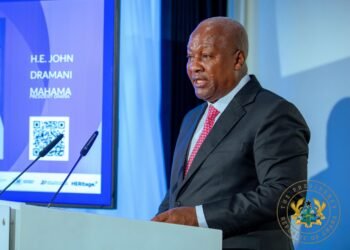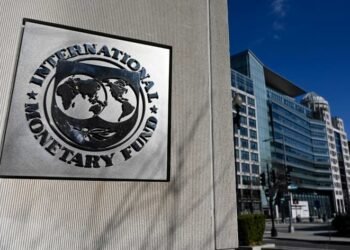Finance Minister, Ken Ofori-Atta, has intimated that Ghana is paying the price for its low resource mobilization through the inability to invest much in infrastructural development in the country.
According to him, the two major sources of income to pay for expenditures for any government are taxes and borrowing, but he stated that the balance will tilt one way or the other depending on the capacity to mobilize revenues. Regrettably, he indicated the country’s revenue mobilization is very low as compared to most of its peers in the Sub-region.
“The consequences, relative to our peers, we have invested less in infrastructure. Between 1961-2020, Ghana’s average Gross Fixed Capital Formation Ratio was 17%, compared to 25% in sub-Saharan Africa. Moreover, between 2017 and now our tax to GDP has hovered between 11%- 13% compared to our peers who were between 16%-20%.
“We are paying the price for low resource mobilization through insufficient capital investment. As such, we have had to borrow more than others to finance some of the investment in infrastructure and the provision of social services and security”.
Ken Ofori-Atta
Mr. Ofori-Atta underscored that the public sentiment out there is clear that Ghana must collect its taxes to avoid debt accumulation, build roads, and get the youth to work.
“So we collect, we pay, we account for it, we discourage our neighbors from avoiding taxes and burden-share. If we are to do so and still achieve our ambition towards rapid development to expand the economy to create jobs and prosperity for the masses, then the project of burden sharing for shared prosperity must be embraced by all”.
Ken Ofori-Atta
Fiscal challenges
The Minister noted that in 2016, Compensation, Interest Payments & Statutory Funds comprised 141.3% of Tax Revenue. As of the end of 2021, it was estimated at 146.5% of Tax Revenue. This, according to him, reflects the constraints on Government’s ability to embark on major transformational projects, without resorting to borrowing.
He, however, believes the government is doing its best to reduce the deficit through its fiscal consolidation efforts.
“Pre-pandemic, the fiscal deficit declined from 6.5% in 2016 to 4.8% by 2019. Last year, we set a target of a 9.4% deficit. As at End-November, we were virtually on target. The significance of this must not be lost on us. It means that the finances of our country is not rudderless. It means there is deliberateness, care, compassion and firebearing. It means there is accountability. It means the economy is being managed well”.
Ken Ofori-Atta
Credit rating downgrade
Speaking on the recent downgrade of the country’s credit rating, Mr. Ofori-Atta indicated that the concerns of the rating agencies are lingered on revenue mobilization, lack of access to international market and the E-Levy impasse.
“In spite of this, we do not face any imminent external imbalance. We have over 5 months import cover which is well above our internal target of 4 months and better than the average over the previous two decades. Although the current debt-to-GDP ratio as at the end of November 2021 is 78.4%, it reveals a reduction in the rate of debt accumulation (i.e. declined by 34% in 2020 to 18% as at November 2021). Suffice to say that Bloomberg updated their publication that wrongly reported Ghana’s debt to GDP ratio 81.5% to reflect the correct figure as above”.
Ken Ofori-Atta
He stressed that government projects to achieve a positive Primary balance target to improve stability and reduction in the debt to GDP ratio in 2022 and through the medium term. In fact, restoring fiscal discipline and putting the public debt on a sustainable downward trajectory is a priority for Government to achieve fiscal consolidation, the Minister emphasized.
According to him, government is also strengthening expenditure management in 2022 and beyond. To ensure that “we match all expenditures to revenue inflows, all expenditure commitments in 2022 will be adjusted to match revenue collection”.
Providing details on how this will be achieved, Mr. Ofori-Atta stated that in accordance with Section 25 of the Public Financial Management Act (PFMA) law, the quarterly expenditure ceilings of the approved budget will include up to a 20% downward adjustment, beginning in the first quarter of 2022, in commitments across board for all covered entities benefiting from the 2022 Budget, subject to revenue performance. This, he said, “means that our fiscal consolidation agenda is not going to be only revenue-led but also expenditure focused”.
READ ALSO: AFCON 2021: Another Upset As Defending Champions, Algeria Exit Competition























